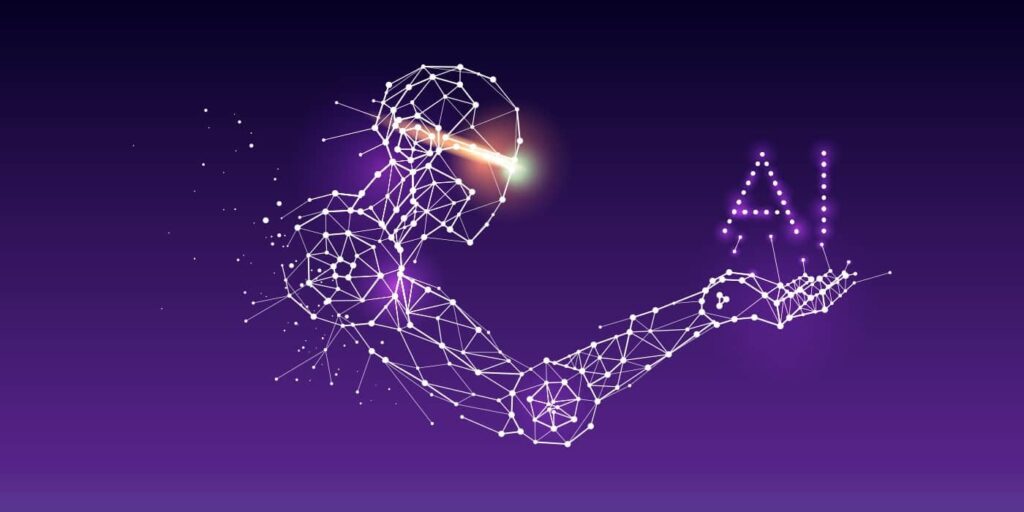In the last 10 years, we’ve seen some significant breakthroughs in the domain of artificial intelligence (AI) and machine learning. In 2011, IBM Watson showed the world that it can be a reality TV show winner. In 2014, Google acquired an AI company called DeepMind, and one of its project, AlphaGo, beat the European Go champion in 2015. In 2016, Google made its TensorFlow library open source, which made machine learning accessible to the masses. Last year, people were left dumbfounded when Google Duplex made a haircut appointment over the phone.
Truth to be told, in the future no one knows how advancements in AI will affect our lives. We have to wait and watch. But one thing is sure – it will definitely change the way we consume technology.
What are the implications of AI?
Whenever there’s an emerging technology, businesses are often the ones affected the most (at least at first). Businesses go through a whirlpool of changes. A recent report by Gartner stated that “AI will be among the top five investment priorities for more than 30 % of CIOs” and “AI Technologies will be in almost every new software product by 2020.”
In terms of IT service management (ITSM) – AI will definitely change ITSM processes and practices. Let’s dig a little deeper to see how AI will change future ITSM solutions.
1. Voice assistance for Technicians
When many of us think of AI, the first thing that pops into our mind is voice assistance (likely thanks to our mobile phones and intelligent speakers and their voice-based AI capabilities).
I remember when I first used Google assistance – every day I would ask what’s the weather like. The novelty lasted for a few days, and then I realized that I could just have a weather widget on my home screen. Similarly, a lot of straight forward questions we ask are a waste of time.
So, the question that needs to be asked is how to make voice assistance useful in an ITSM product.
A simple answer is that we need to move beyond gimmicks. In my opinion, simple queries such as “How many open tickets are there?” are useless, when almost all top ITSM tools have powerful dashboards. We need more useful use cases.
An example is a search tool that allows technicians to create complicated search queries by combining keywords and search options. The technician can search for tickets, problems, changes, knowledge articles, assets, etc. Now imagine they integrate an AI-driven assistant in their search bar like Google – an AI that understands the context of a question, and learns and builds a profile for each technician. This would lead to some interesting conversations between the users and the product – something like:
IT Technician 1: “I need to know the average resolution time of John for the last 3 months.”
Virtual Assistant: “The average resolution time for John is 2 days.”
IT Technician 2: “Give me a list of all desktop assets with the software Adobe Photoshop.”
Virtual Assistant: “A pdf report has been added to your download queue.”
The benefits from such a capability include:
- Faster ticket resolution, which equates to happier end users
- That technicians don’t have to waste time building reports – they can simply create reports from search queries
- That technicians can drill down on an issue to access the available data.
2. AI-driven incident categorization
Without categorization, a ticketing system would be an endless stream of confusion.
Then both support staff and requesters (end-users) might select the wrong category while creating a ticket, which can have some serious consequences in terms of wasted time and potentially a business-level impact.
Using natural language processing (NLP), an intelligent system can understand the context of each and every incoming ticket, and over time, it will have enough data to automatically suggest a category with a high degree of accuracy while creating a ticket. It can even be more accurate than its human counterparts.
3. AI and ITSM: Suggesting knowledge base articles
The best way to decrease the resolution time of tickets is to resolve common issues before they’re submitted as tickets.
Here AI can play a big role. Whenever a requester, on the service portal, starts to fill out an incident form, the system will suggest related knowledge base articles (after analyzing the subject and description). This will drastically reduce the number of incoming requests related to common issues.
4. AI and ITSM: Suggesting workflow automation by identifying common processes
Machine learning enabled ITSM tools can learn how technicians are resolving issues. It can learn about patterns that are often recurring, and based on this it can suggest workflows, keeping in mind the possibilities. This will allow the IT admin to progressively streamline IT services.
5. AI and ITSM: Identifying known problems proactively
All major ITSM tools have something called a known error database for problem management.
A known error database is a collection of problems that have occurred more than once – and it’s a treasure trove for a machine learning algorithm. It would give ITSM tools the capability to identify known errors and give a correct solution without any intervention from a technician.
6. Sentiment analysis
We’ve talked of NLP, and sentiment analysis is the part of NLP that mines human-generated texts to extract context out of it.
One use case is to predict the mood of a requester, just by analyzing the subject and description, while creating a request ticket or conversing in a chat.
The obvious benefit of such a capability is that a technician would have insight into the context before deciding on a priority. Or maybe into the need to escalate an issue sooner rather than later.
How do you think AI will help ITSM and IT support in particular? Please let me know in the comments.
Amit Shingala
Amit Shingala Chief Executive Officer. Amit has 12+ years of experience in building & selling enterprise product to solve problems of cross-monitoring.

